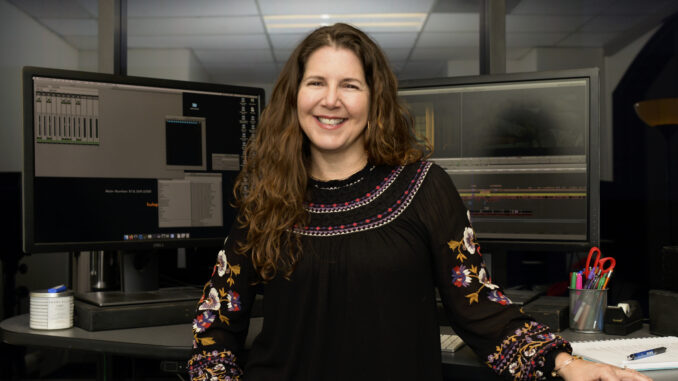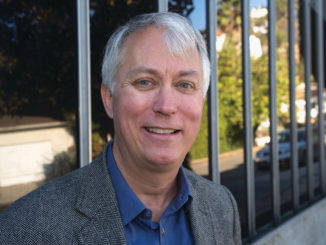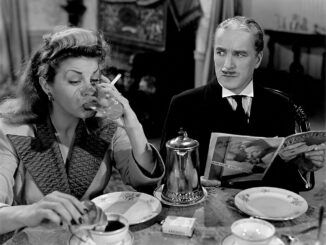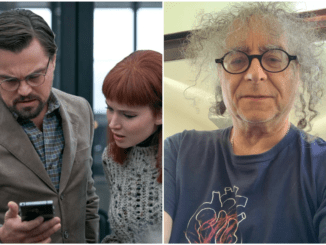
By Rob Feld
When she was 13 years old in Peru, Sandra Montiel’s uncle, a filmmaker, came to visit her family. While they were running errands together, he read her a screenplay. She found herself fascinated by the way a deeply emotional story could be transmitted in 90 pages of script.
Her father wanted her to study business, but her artist mother argued to let her study film, which she eventually did at the University of Southern California. There she found that the place she felt the most control of the creative product was in editing, where she could be free to manipulate sound and image in any way she could imagine. Her journey began soon thereafter, starting her career as an assistant.
Montiel’s most recent project with director Richard Wong, “The Valet,” is a remake of the French film, “La Doublure.” In their telling, it is the story of Los Angeles restaurant parking attendant Antonio (Eugenio Derbez). Antonio accidentally appears in a paparazzi shot beside a movie star, Olivia (Samara Weaving), who is in a lovers quarrel with her married boyfriend, Vincent (Max Greenfield). To avoid a PR and marital disaster, Vincent pays Antonio to pose as Oliva’s boyfriend until the heat is off. This thrusts Antonio, whose own marriage is ending, into the spotlight and chaos of L.A. celebrity life. The film starts streaming Friday on Hulu.
A significant portion of the film tracks Antonio’s life with his family and valet colleagues, so Montiel’s Spanish fluency greatly aided her work in what is, essentially, a comedy about platonic romance. But the greatest challenge she found in the film’s narrative was conveying to the audience Olivia’s mega-stardom while keeping her relatable. “We have to like her at the end and remember that happiness doesn’t necessarily come with fame or money, even though her life seems desirable,” Montiel said. But to get to that point at the end, Montiel had to establish a world in the beginning.
CineMontage: Let’s talk about the first act of “The Valet,” because a great deal has to be established there in not much time.
Montiel: The first act was the most challenging piece in the edit. You have to start fast and you’re afraid of people tuning out if the first five minutes don’t grab them. We had to make sure Act One was moving quickly toward the moment where Antonio, Olivia, and Vincent collide. For example, to establish Olivia’s stardom, we first hoped to rely on seeing her face on movie billboards as Antonio is biking. But audiences didn’t really notice, so we did additional photography of Olivia at a café, showing she’s a star.
CineMontage: It sounds like you and Richard Wong had a fluid collaboration, then?
Montiel: He’s a great listener and at saying, “Do your thing, let me see it and then let’s discuss.” There would be a lot of talk during production—the producer, Ben Odell, would call and say, “Rich and I were talking, do you think we need more for this?,” or, “Sandra, do you think this is too dramatic?,” “Do you think this actor is too over the top?” So those conversations happened a lot and it was very helpful. For some of those moments, I cut the scene and sent it that day so they could make an adjustment if needed. I try to teach my assistants that directors are going to give them a million options, but they hire you to make a choice. They want at least one. If it wasn’t the one they wanted, at least they have an entrance. The older I get, the better I get at the politics of film. Being an editor is not just about good storytelling, [it] is also about knowing how to navigate the politics of a film: managing personalities, feelings, letting go; managing when three people want something different with me in the middle. When I present my cut, I feel confident that it’s the best that I could do. If it happens not to be what the director wanted, then let’s do it together. I leave my ego at home!
CineMontage: You’ve cut in various genres. How did you approach the comedy of “The Valet”?
Montiel: I did comedy, then I did drama, then I did action—these transitions are hard to accomplish, because whenever you go to an interview, people only want to hire you for what you’ve done before. Comedy is closer to action because you cannot have rules; you have to do whatever you can to make the joke land. It’s the same with action. There are no rules saying you must go from this shot to this shot, or to this lens. You need to make it exciting while following what’s happening. The worst thing that can happen in an action movie is losing the sense of where you are. Drama is just a different muscle.
CineMontage: What is that muscle?
Montiel: In comedy, you don’t really need music, which is there to enhance. But with my first drama, I had to learn to cut music. Whenever something horrible happened, I would have to find different pieces of music and combine them so they will swell in the right places. In comedy, I cut a scene and I make it work. Music only comes at the end where I feel it is needed. But in drama, a piece of a song can really help you get the emotional response you want. But really, you just have to be open to trying anything. I did reality TV for a couple years and the producers would ask you for anything. There may be a scene where a girl is supposed to look at a boy and she’s in love, but there is no such shot. So you use one where she was looking at buffet of desserts. What reality TV taught me was to not be restricted to what’s supposed to be there. It opened my mind. You need to try it all even if you think it will never work!
I love that it took reality television to teach you to fictionalize a scene.
Montiel: That’s your interpretation! That’s your interpretation. But it’s a good one. Our whole job is to tell a story, and if I need to make you cry or laugh or be scared, then I make that happen. Whatever it takes to get there, that’s the job.
CineMontage: What was your process cutting duing the pandemic?
I know there is a lot of talk between editors about working at home versus working in person. I strongly feel working in person is best, since I take into consideration my team’s opinions. I had an amazing and diverse team on “The Valet.” We made this movie together with everyone’s collaboration. My assistants, Jeremy Mattheis, Annie Popko, and apprentice editor Henry Mendoza and music editor DeVaughn Watts, as well as my PA Nayeli Fernandez, were a huge part of the movie. Also, my post producer, Renee Minasian and coordinator Mckenzie Mosley were key in making post effective and easy to navigate. I couldn’t have done it without them. We were in the middle of the pandemic when I started, so I did the editor’s cut at home. My assistants also worked from home as well but used a unique remote system that they logged into set up at Hula Post. Eventually, my whole team came into a private suite in Hula Post’s West L.A. location, which made us all feel very safe.






